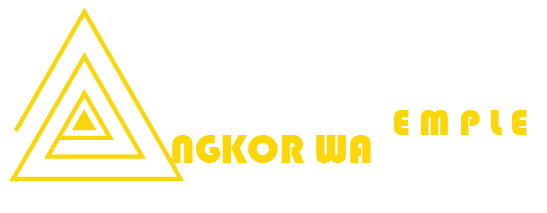


Mondulkiri Travel Guide
Mondulkiri is an eastern province of Cambodia, which is the most sparsely populated province in the whole country although being the largest province in Cambodia. The province is chock full of natural beauty, with thickly forested mountains, powerful waterfalls and the lush green rolling hills of the western side.
Despite the growing deforestation, especially due to the valuable minerals remaining in the deep red, fertile ground, Mondulkiri has still one of the biggest successional woodlands of Cambodia. Except being in Sen Monorom, you’ll find deep pure jungle, with a huge variety of flora and fauna. You may also find gigantic and beautiful waterfalls, where you can take an empowering shower, such as the impressive Bou Sraa.
Sen Monorom is the provincial capital and doesn’t show up as a typical Cambodian town, while it is the only town the province has to speak of. With approx. 7500 inhabitants, 20 guesthouses, 12 restaurants, 3 bars and no post office it is often compared to American Wild West frontier towns. Concerning the quietness and beauty of Sen Monorom people from other parts of the country move here and therefore the land price doubled from 2006 to 2007.
The town of Sen Monorom is the best base camp for travellers who want to explore the surrounding areas. A quiet but beautiful town nestled into the hills; it has a lot of potential to develop into a centre for non-intrusive eco-tourism. At present, it’s very undeveloped, which gives you a feeling of going somewhere off the beaten tourist trail. Add to that the communities of hill tribe people, who are not affected by mass-tourism, as they are in neighbouring Thailand, and you have an area that is very attractive to the adventure traveller.
Also interesting is the variety of languages being used: Khmer, hill tribe languages, Vietnamese and Lao. 80 percent of the population in Mondulkiri is made up of ten tribal minorities, with the majority of them being the Chunchiet from the tribe of the Phnong. The remaining 20 percent are Khmer, Chinese and Muslim Cham. Most of the population lives off the land, planting rice, fruit trees and a variety of vegetables. Others grow, coffee, strawberries, rubber and cashew nuts.
More and more houses are built in the typical Khmer style. Visiting the hill tribes you still can find the traditional Phnong houses. In the houses you can find traditional gongs and big jars, whereby the last ones are said to be more than a thousand years old. There are various sorts of gongs used for different occasions. Jars and gongs are among the most valuable possessions in an indigenous community, whether in traditional, spiritual or material terms. During the Khmer Rouge Regime those objects were buried in hidden places in the jungle and in many cases they still wait in the ground.
Geography
Mondulkiri province is situated on the South – East plateau (approx. altitude around 200-1000 metres), it’s capital Sen Monorom is about 375 Km from Phnom Penh. It is bordering Vietnam to the East and South, Ratanakiri to the North, and Kratie province to the West. Beside a bunch of smaller rivers, which grow quite big during the rainy season, there are two bigger rivers crossing the province ( the Preaek Chhbaar and the Preaek Te River ). The total area of Mondulkiri is about 14,288 square kilometres.
Population
80 percent of the population in Mondulkiri is made up of ten tribal minorities, with the majority of them being the Chunchiet from the tribe of the Phnong. The remaining 20 percent are Khmer, Chinese and Muslim Cham. Most of the population lives off the land, planting rice, fruit trees and a variety of vegetables. Others grow, coffee, strawberries, rubber and cashew nuts.
Usually they make their living through traditional ways of cultivation (shifting agriculture), hunting and collecting fruits from the forest is a must. These old cultures believe in spirits, derived from their animism beliefs. The population density has a total of 44,913 inhabitants (22,890 male and 22,023 female). This is 3,14 inhabitants/sq km.
Climate
Mondulkiri province has a climate like the other areas in the country, there are 3 seasons:
– Rainy season: June – October (<25c)
– Cool season: November- February (>20c)
– Hot season: March- May : Temperature: from 20c -30c
Mondulkiri’s average temperature throughout the year is definitely lower than in other areas of Cambodia (except Ratanakiri Province).
Economy
The vast majority of the indigenous peoples living in Mondulkiri are subsistence farmers, who are planting some rice and other vegetables, more or less to feet themselves. There is also a quite common production of the famous rice wine here, which is one of the best in the country. Additionally the indigenous people are selling handmade products such as bracelets, necklaces, scarfs, Kramas etc. to the few visiting tourists.
Mondulkiri has a quite big influence from Vietnam, which shows you the marked in Sen Monorom. Lots of Vietnamese products are sold here.
Unfortunately in the past 2 years the selling of real estate became a big source of income due to the fact, that international mining companies are buying land to find bauxite (a very valuable mineral). The worst are instances of dispossession of indigenous lands, which are occurring in some parts of the province and also in the adjacent province of Ratanakiri.
Anyhow Mondulkiri is so sparsely populated that the provincial capital does not have an adequate market compete to other provinces of Cambodia. But fertile red soil, water sources, wild animals and quality hardwoods abound and the weather and scenery are perennial assets.
